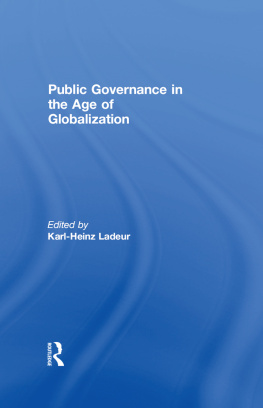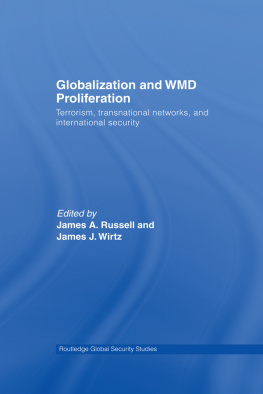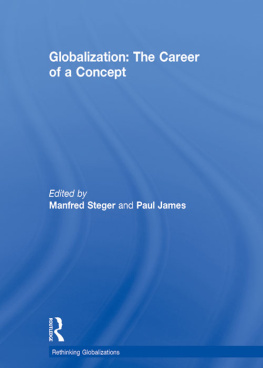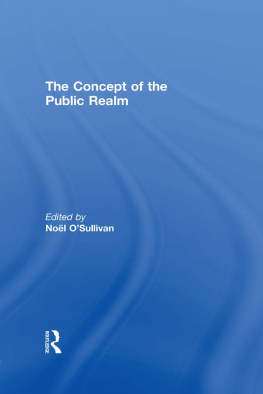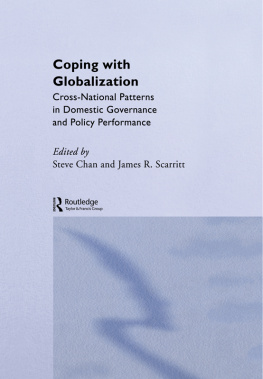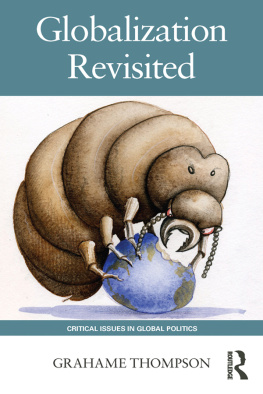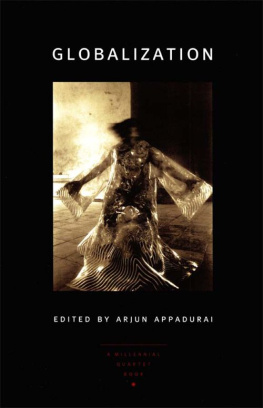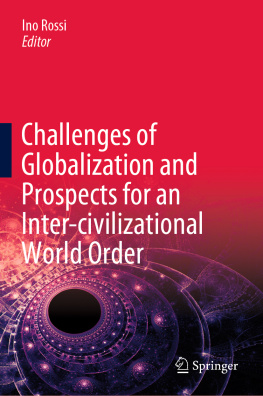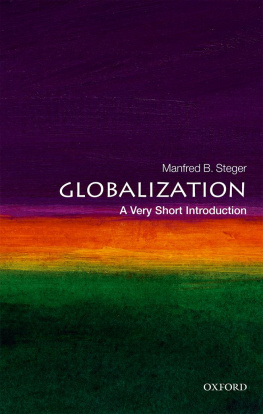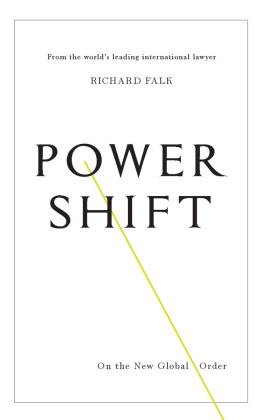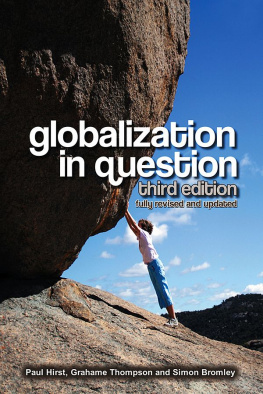PUBLIC GOVERNANCE IN THE AGE OF GLOBALIZATION
Public Governance in the Age of Globalization
Edited by
KARL-HEINZ LADEUR
University of Hamburg, Germany
First published 2004 by Ashgate Publishing
Published 2016 by Routledge
2 Park Square, Milton Park, Abingdon, Oxon OX14 4RN
711 Third Avenue, New York, NY 10017, USA
Routledge is an imprint of the Taylor & Francis Group, an informa business
Copyright 2004 Karl-Heinz Ladeur
All rights reserved. No part of this book may be reprinted or reproduced or utilised in any form or by any electronic, mechanical, or other means, now known or hereafter invented, including photocopying and recording, or in any information storage or retrieval system, without permission in writing from the publishers.
Notice:
Product or corporate names may be trademarks or registered trademarks, and are used only for identification and explanation without intent to infringe.
British Library Cataloguing in Publication Data
Public governance in the age of globalization
1. International and municipal law - Congresses 2. Globalization - Political aspects - Congresses 3. State, The - Congresses 4. Globalization - Economic aspects - Congresses
I. Ladeur, Karl-Heinz
341'.04
Library of Congress Cataloging-in-Publication Data
Public governance in the age of globalization / edited by Karl-Heinz Ladeur.
p. cm.
Includes bibliographical references and index.
ISBN 0-7546-2368-8
1. Public administration. 2. Globalization. 3. Democracy. I. Ladeur, Karl-Heinz.
JF1351.P822 2003
327.1--dc22
2003058363
ISBN 9780754623687 (hbk)
Contents
Karl-Heinz Ladeur
Lawrence M. Friedman
Saskia Sassen
Gunther Teubner
Karl-Heinz Ladeur
Anne-Marie Slaughter
Joshua Cohen and Charles F. Sabel
Mark Van Hoecke
Martin van Creveld
Jean-Jacques Rosa
Thomas Vesting
Joel P. Trachtman
Pedro Gustavo Teixeira
Joshua Cohen, Goldberg Professor of the Humanities, Massachusetts Institute of Technology
Martin van Creveld, Professor of Military History, Hebrew University, Jerusalem
Lawrence M. Friedman, Marion Rice Kirkwood Professor of Law, Stanford University
Mark Van Hoecke, Rector of the Catholic University, Brussels
Karl-Heinz Ladeur, Professor of Public Law, University of Hamburg
Jean-Jacques Rosa, Professor of Economics at the Institut dEtudes Politiques, Paris
Charles F. Sabel, Professor of Law and Sociology, Columbia University
Saskia Sassen, Ralph Lewis Professor of Sociology, University of Chicago
Anne-Marie Slaughter, Dean, Woodrow Wilson School of Public and International Affairs, Princeton University
Pedro Gustavo Teixeira, Researcher, Law Department of the European University Institute, Italy
Gunther Teubner, Professor of Private Law, University of Frankfurt/Main
Joel P. Trachtman, Professor of International Law, Tufts University
Thomas Vesting, Professor of Public Law, University of Frankfurt/Main
The articles are based on a conference which was held in March 2001 at the European University Institute in Florence. All papers presented during this conference have been revised and edited in the meantime. I thank my collaborators in Florence, Alexandra George and Alessandra Chirico, and at the University of Hamburg, Sylvia Kunz and Heiko Siebel-Huffmann, for their careful work on the preparation of this volume.
The financial support of the Law Department of the European University Institute is gratefully acknowledged.
Karl-Heinz Ladeur, Florence/Hamburg, January 2004
Karl-Heinz Ladeur
I. Globalization and its Discontents
This book is devoted to the analysis of the difficult relationship between globalization and public governance. Both concepts may appear to be so all embracing and global that their use might, in itself, require an explanation.1 The chapters of this book try first to explain what, with respect to public governance, globalization is not: it is not the invocation of a chaotic unstructured process of dissolution of public order as it has been conceived of in the context of the Westphalian System as established in 1648.2 Nor is it equivalent to a take-over of political power by multi-national stateless enterprises with a corresponding tendency towards abolishing state-based democracy. Many phenomena which are attributed to the process of globalization, in particular the crisis of the welfare-state, do not have much to do with a challenge of the sovereignty of the state by multinationals that look for new opportunities for capital investment and orient their decision-making at global markets.
With good reasons, P. Krugman3 has argued that the effective influence of globalization on the nation state is still negligible when compared to national economic factors: major sectors of the economies of the leading industrial countries develop without the underlying major impact of the world economy.
In spite of this request for a more balanced and differentiated judgement, we have to register that the important phenomenon of globalization is taking place.4 However, this development is deployed in a much more institutionalized way than many critics would have it. There are important transnational (international and inter-societal) and supra-national elements of a new public order, which remain, however, beyond the traditional borders of the state but not completely beyond the state as such. New organizations and institutions are brought to bear on economic processes that impose a legal and political structure on global economic processes. The crises on the global financial markets5 do not call this hypothesis into question; they do, however, demonstrate that there is no harmoniously fine-tuned co-ordination between economic and legal-political evolutions.
In spite of the fact that, in a sense, we also had a global economy before World War I, new phenomena, which may justify the use of the concept of globalization, are to be taken into account by virtue of the increasing importance of transnational forms of economic exchanges.
Transnational, in this sense, means processes which develop beyond the impact of the well known international government-based treaties. This is, in fact, an important element of the transformation of economic transactions on world markets. At the end of the day, one should, of course, not forget that the economic systems at the beginning of the 20th century were the object of a deeply rooted process of internationalization. However, former processes of globalization were much more closely related to the forms of the traditional nation state and its legal forms of mediation between internal and external relationships. The state itself has never been a closed form, but its sovereignty was demonstrated by the fact that, even in liberal states which recognized freedom of internal competition, the state used to control the external economic relations with firms in other countries very intensely/strictly. This earlier form of globalization was much more closely linked with the international state-system and the ideas on the mutual advantages of international economic relationships.
II. Globalization in the 1920s a Lesson which has to be Learned

